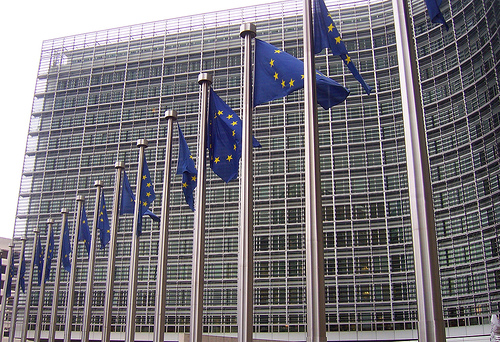The European Union has confirmed plans to increase its energy efficiency target to 30% by 2030 in an effort to reduce dependency on energy imports while creating jobs and increasing GDP across the trading bloc.
Released today as part of a suite of proposals for the future of EU energy policy, the updated Energy Efficiency Directive has put forward a range of new measures designed to help ensure the Union cuts CO2 emissions by at least 40% by 2030, while modernising the EU’s economy and delivering jobs and growth.
The energy efficiency target of 30% when compared to projected energy use, up from the existing 27% target for 2030, is part of the EU’s ‘energy efficiency first’ principle. To this end, the Commission will ensure that energy efficiency and demand side response can compete on equal terms with generation capacity.
“Energy efficiency needs to be considered whenever energy system relevant planning or financing decisions are taken. Energy efficiency improvements need to be realised whenever it is more cost effective than equivalent supply-side solutions,” the updated directive states.
It also includes plans to increase ecodesign measures for appliances sold on the EU market. By 2020, the Commissions says the Ecodesign policy is expected to deliver yearly energy savings equivalent to the annual energy consumption of Italy, saving European households €500 per year on their energy bills, delivering approximately €55 billion per year extra revenue for industry, wholesale and retail sectors
In addition to this, the measures announced in the Ecodesign working plan for 2016-2019 are said to have the potential to deliver further energy savings by 2030, equivalent to the annual energy consumption of Sweden.
Energy efficiency obligation schemes, which place a burden on energy suppliers to lower their customers’ energy consumption by 1.5% each year by installing measures like insulation or efficient boilers, will continue to 2030.
This is intended to attract private investment and support the emergence of new market participants. Member states will also be able to meet this requirement through alternative measures having the same effect, such as energy efficiency support schemes.
The commission is also proposing changes to the Energy Performance of Buildings Directive to encourage increasing use of smart technologies to ensure efficient building operation.
It will also simplify the regulatory system by removing underperforming provisions, as well as support increased building renovation by strengthening the links between achieving higher renovation rates, funding and energy performance certificates.
Combined with an increased push on national long-term building renovation strategies, the Commission is aiming to completely decarbonise the EU’s building stock by 2050.
Buildings currently account for 40% of Europe’s energy consumption, with two-thirds of the EU’s buildings constructed before energy performance standards existed, with their renovation rate estimated to be only around 1% per year.
In a further sign of the growing recognition of the rapidly evolving electric vehicle market and its role in widespread decarbonisation, member states will also be instructed to include at least one charging point for every ten parking spaces at all new non-residential buildings and in all existing non-residential buildings undergoing major renovation.
In addition, pre-cabling will need to be ensured at newly built residential buildings and those undergoing major renovations to enable the installation of recharging points for electric vehicles for every parking space.
The new amendments to the Energy Efficiency Directive and the revised European Performance of Buildings Directive are expected to increase the European industry by €23.8 billion in the EU by 2030, and creating a building renovation market for SMEs with a value of between €80-120 billion.
The commission added that the 30% energy efficiency target alone could create benefits in the real economy up to an additional €70 billion euros and 400,000 jobs compared to a 27% target.
However, there have been claims that this final target is not progressive enough, with MEPS voting in June that a 40% energy efficiency target should be set for 2030.
Ingrid Holmes, director at consultancy E3G, said: “The binding 30% in 2030 headline target for energy efficiency represents progress, albeit less than the 40% cost-effective potential that would have represented greater value for consumers and businesses.”
However, she added: “By ensuring that energy efficiency and demand side response can compete on equal terms with supply side options, the Commission has moved a step closer to making ‘Efficiency First’ a reality.
“Opening up energy markets to demand side flexibility is an explicit recognition of the pivotal role energy efficiency must play in the clean energy transition.”
The proposals will now be submitted to the European Parliament including committee review, where amendments could be made, before heading to member states to be discussed. The measures are due to be implemented in 2018 and will provide greater certainty to the EU than the UK’s current energy policy, which will not be subject to the EU’s plans once it has exited the union.
Howwever, the Renewable Energy Association has suggested that this “Winter Package” could be of importance to the UK despite the referendum vote as many of the laws proposed may be transferred over to UK legislation in the proposed “Great Repeal Bill.”
James Court, head of policy at the Renewable Energy Association, said: “We welcome this Winter Package as it will support the UK’s movement towards a more flexible, decentralised, and lower-cost energy system. While the UK is leaving the European Union, policies such as these remain very important as they may be transferred into domestic law.”





